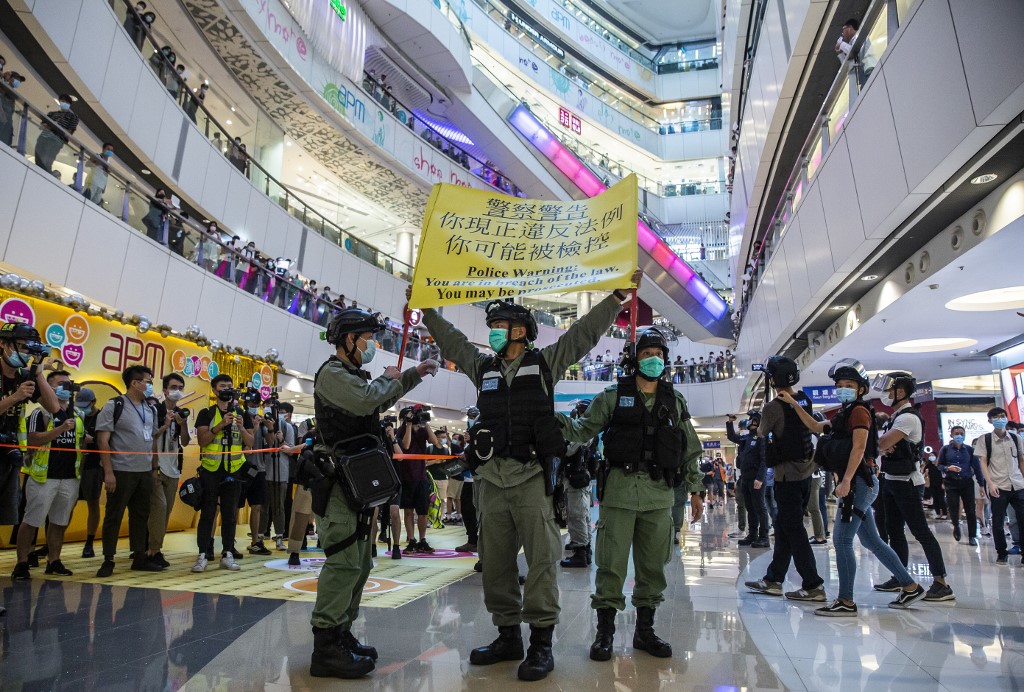
Riot police hold up a warning flag during a demonstration in a mall in Hong Kong on July 6, 2020, in response to a new national security law introduced in the city which makes political views, slogans and signs advocating Hong Kong’s independence or liberation illegal. (Photo by ISAAC LAWRENCE / AFP)
HONG KONG — Hong Kong’s government has expanded police surveillance and enforcement powers using Beijing’s sweeping new national security law.
The changes were spelled out in 116-pages of guidelines released late Monday that form part of a new law targeting subversion, secession, terrorism and foreign collusion.
Below are some of the key powers granted authorities when conducting national security investigations.
Warrantless searches
Police can now raid premises without a court-granted warrant in “exceptional circumstances”, the government said.
The guidelines specifically stated this would apply if it “would not be practicable to obtain” a warrant. The rules also apply to searches of vehicles or electronic devices.
Internet censorship
Police now have the power to remove online content — a move that embeds unprecedented control over the internet in a city outside of China’s “Great Firewall”.
If police decide an internet user’s online post is likely to constitute or cause “an offence endangering national security”, they can order the user to delete the post, order the platform on which it was posted to remove it, or order the platform’s web host to pull the message.
This applies whether the message was posted in Hong Kong or elsewhere.
If users or providers do not follow the police order, officers can apply to a magistrate for a warrant to seize relevant electronic devices and take action to remove the message.
They can also apply for a warrant ordering people and businesses to hand over a message’s identification record or help decrypt messages.
Individuals who do not obey the order are liable to be fined up to HK$100,000 ($12,900) or jailed for up to a year. Jail terms for service providers are capped at six months.
Asset seizures and travel restrictions
Once someone is suspected of endangering national security, police can apply to a magistrate for a warrant ordering them to surrender their passport.
The city’s security chief can also freeze any assets deemed to be related to an offence against national security, and the justice chief can apply to the courts to order the property’s confiscation.
Foreign political organisations
The city’s police chief can — with the security minister’s approval — compel political groups or agents from abroad, including Taiwan, to hand over certain information.
That includes their activities, personal details, and details on their finances and sources of income.
Any agent or group that fails to hand over the information is liable on conviction to a fine of HK$100,000 and six months in prison — or two years in prison if they give information which proves false.
Covert surveillance
The city’s chief executive — a pro-Beijing appointee — will have final approval on all applications for interception of communications and covert surveillance operations to do with national security cases.
Less intrusive surveillance can be approved by senior police officers.
“The authorising authority,” the government said in its statement, “has to ensure that the covert operation concerned satisfies the proportionality and necessity tests before granting the authorisation.”

